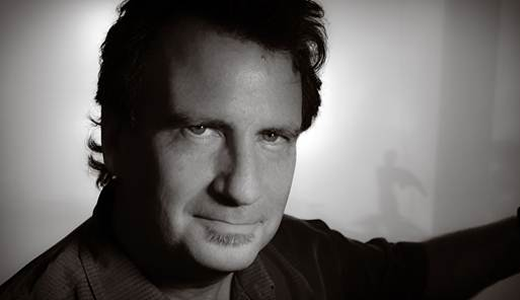Last week on my blog post “Alaskan Sham People,” I confessed that, even though I’m a media guy, I was shocked to discover that a reality show I like wasn’t very real at all.
One thing led to the next, and I found myself in the studio recording an interview with Schy Gleason. Gleason has worked as finish editor/colorist on a number of “reality TV” shows including Deadliest Catch, 19 Kids & Counting, Ice Road Truckers and Jon & Kate Plus 8. But he’s been pretty open about the fact that very little of what we see in reality TV is spontaneous, and he even advocates losing the term reality television altogether. He seemed like the perfect guy to ask a lot of questions I had. “Listen” in:
Bob Waliszewski: Schy, you’ve not made it any secret that you don’t like the term reality television. You prefer scripted reality. Why so?
Schy Gleason: “Reality” has become a marketed catch phrase. The term “pork and beans” on a can actually does not require any pork in the can. It has become a branded phrase to the point that a product such as pork and beans doesn’t have to have any pork in it. So, the word “reality” has become a catch phrase, a marketing term that sells a lot of product, and the mass media uses that to sell advertising.
Waliszewski: There are dozens and dozens of reality shows, and I’m aware that every reality show probably does things differently. But there are some similarities for a lot of shows. When you’re talking about “scripted” reality, how does that “script” show up?
Gleason: The producer again only has 45 minutes to tell a story. So, the truth of the situation is usually well researched and some producers and production companies are better at discovering that truth while the cameras are rolling. … There’s a lot of pressure to find drama and every eight minutes before the commercial break make sure there’s some kind of [conflict] so that people come back after the commercial.
Waliszewski: So, to come up with a mini-conflict every eight minutes before each commercial break seems to indicate a contrived conflict. Or in other words, a stretching of the truth. Is that fair to the viewer?
Gleason: I think the viewer, the consumer of this video product, has required it. … I don’t know if the word “fair” is accurate. Circumstantial. In context in American society in cable and broadcast television today we don’t pay for that service other than sitting through commercials. With 500 different channel options, the challenge is to keep the audience’s attention for the next 90 seconds during a commercial so they’ll be sure to hang with the story after the commercials go away.
Waliszewski: In the world of professional wrestling, my guess is that 90% of the audience realizes that most of what they’re watching is staged. It’s not real. And that hasn’t hurt the sport. But with reality TV, my guess is that only about 30% of the audience realizes that these shows are significantly doctored. That leaves about 70% who think what they’re watching, with very little exception, is accurate, true and how things happened in real life. If my guess is right, then unlike professional wrestling, I think all reality shows need to come with a disclaimer about the fictional nature. Do you agree or disagree?
Gleason: I’m not an expert in that because I did not produce these shows that we’re talking about, so I don’t want to presume to know what went in the can, what went in the “pork and beans.” But I will speak to the disclaimer. Often many of the shows that I have been a part of describe a situation, and often times … the disclaimer comes up and says this is based on a truth about this situation. This is based on a circumstance at this time in history and often times they are disclaimed as a re-creation of a situation or circumstance. …I’d love the consumer to be educated about the entertainment they’re watching and that the buyer beware in the sense of you’re watching television, [the first priority of the show is to entertain] because they have to keep your eyeballs so that they can sell advertising for the major corporations.
Waliszewski: When reality shows depart significantly from the truth, at what point does that become fictional entertainment? And when it does, should we say, Hey, it’s still kind of fun? Or should we be saying, We shouldn’t do it this way because it’s a blatant lie?
Gleason: I think you need to flip your premise. The premise that needs to be understood—the social contract that you have made with the television—is that it is entertainment. You have to understand that it is entertainment first. …I’m hoping your blog generates the understanding that this is entertainment for the purpose of selling commercial products.
Waliszewski: I think if we get to the point where reality TV is viewed as fictional, like professional wrestling, then that idea makes sense to me. I just don’t think culturally we’re there yet.
Gleason: That’s why I’m excited you’re speaking into this and that’s why I’m grateful that I’ve had the opportunity of being on the inside of the system of this machine, this factory, and to have to think about this kind of thing. Because reality, like I said, has become a branded phrase just like “pork and beans.” Again does it have to have pork in it? Technically, legally, no, but it says “pork and beans.” Isn’t that lying? No, it’s a brand. Just like reality [TV]. It doesn’t have truth in it. Well, it has parts of truth. It has essence of truth in it, but it’s entertainment.






Recent Comments